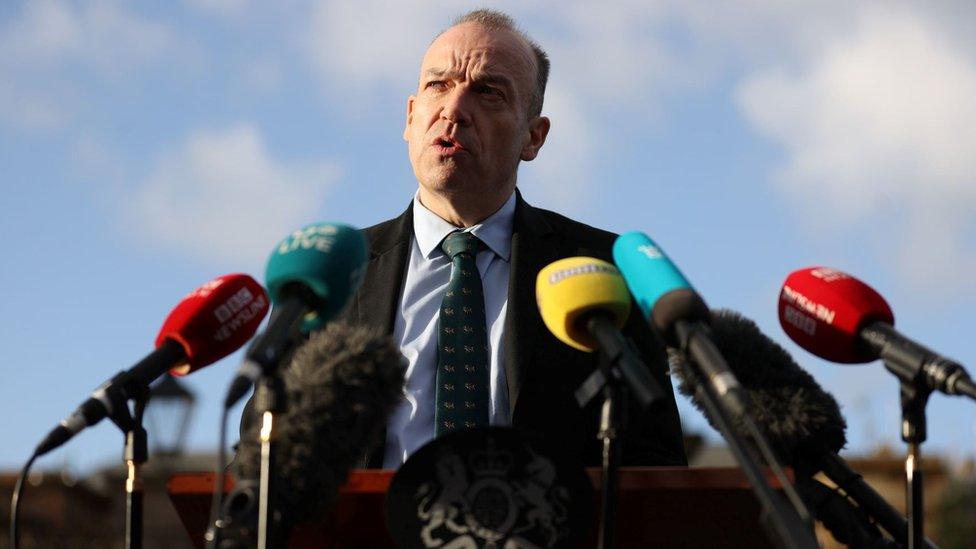NI Stormont talks: Traditional direct rule off the table, says Tory MP
- Published
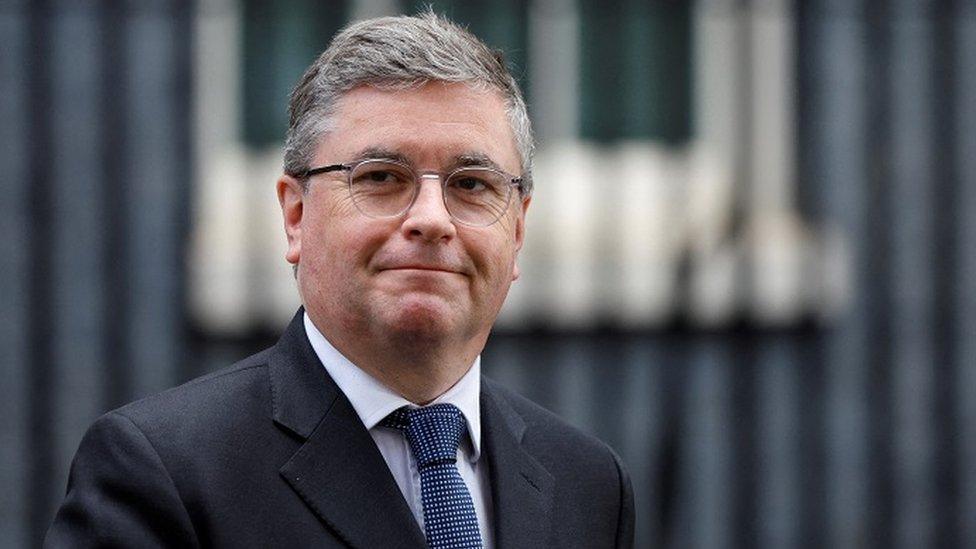
Sir Robert Buckland said devolution must be restored for the people of Northern Ireland
Traditional direct rule is unlikely if devolution is not restored in Northern Ireland, a Conservative MP has warned.
Sir Robert Buckland said any alternative to the DUP agreeing a deal would likely mean the "involvement of the Irish government".
The chair of Westminster's NI Affairs Committee called on the party to show courage.
The DUP is boycotting Stormont over its protest against post-Brexit trade rules.
In negotiations before Christmas, the government offered a £3.3bn financial package should the power-sharing executive return to Stormont.
However, the DUP said more work is needed to be done in order for it to agree to return to devolved government in Northern Ireland.
Secretary of State Chris Heaton-Harris has invited Northern Ireland's five largest parties for one-to-one talks at Hillsborough Castle on Monday.
Devolution must be restored by Thursday night or Mr Heaton-Harris is legally obliged to call a fresh assembly election.
However, the government has so far downplayed the prospect of calling an election and it can instead opt to legislate for a further delay.
'Direct rule off the table'
Sir Robert, speaking to BBC News NI's The View programme, was asked about comments by SDLP leader Colum Eastwood, in which he told the Irish News, external there can be no return to "direct rule or some form of Tory administration in the north" and called for an "enhanced role for the Irish government".
The Conservative MP said direct rule would mean "triggering certain aspects of the Good Friday Agreement" and "involvement of the Irish government, ultimately".
When asked if "old-style direct rule of the past" was off the table, he responded: "I think so.
"I think anybody who like many of us will have remembered and read and committed parts of the process of the Good Friday/Belfast Agreement to memory, will know there is no going back to that previous dispensation.
"That would be to upend 26 years of progress. And that is what is at stake here."
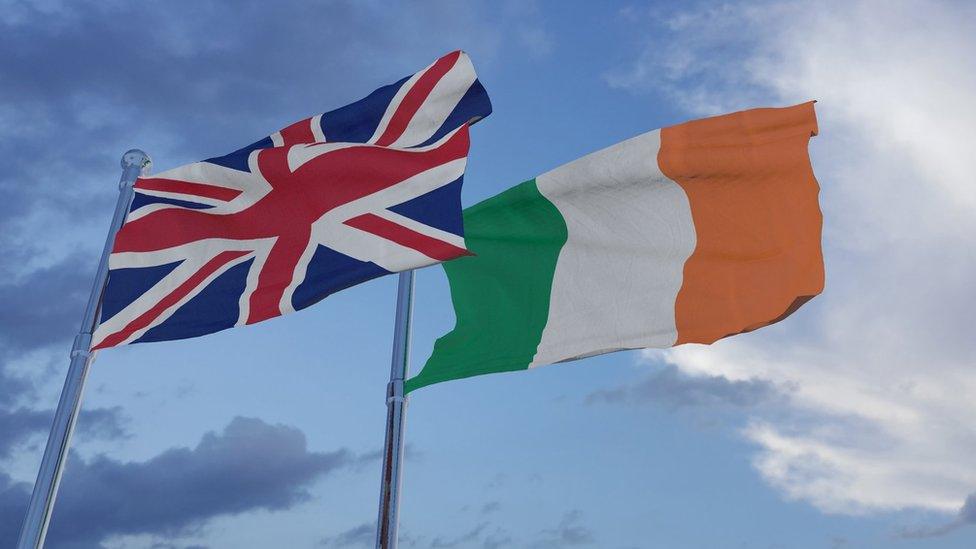
Sir Robert said that any alternative to a deal would require cooperation with the Irish government
Sir Robert described the government's £3.3bn offer as generous and denied that it was using ongoing strikes in Northern Ireland as a means to pressure the DUP into a deal.
Public sector workers, including healthcare workers, education staff and civil servants, have been holding a number of strikes over pay. The government's offer includes £584m to solve public sector pay issues.
"I think on one level it's maybe a cynical view about how the UK government would view the valued contribution that public service workers make in Northern Ireland," he said.
"The reality is this facing all of us - all of us as elected politicians have responsibilities to face up to.
"Sometimes we have to make decisions that we don't particularly like, we don't live in a perfect world. The DUP are part of this imperfect world. There isn't a perfect solution for them.
"But there is a solution and a solution that can deliver for their constituents, many of whom are public sector workers, in a way that I think would redound to their credit."
He added: "That's why I think now is the time for leadership, for courage if you like - an overused word sometimes, but one that might apply in this case - to allow the executive to be formed as quickly as possible."
DUP MP Sammy Wilson in a post on X, the social media site formerly known as Twitter, said Sir Robert had "shown himself to be an arrogant little pipsqueak" and called for him to apologise for his comments.
Allow X content?
This article contains content provided by X. We ask for your permission before anything is loaded, as they may be using cookies and other technologies. You may want to read X’s cookie policy, external and privacy policy, external before accepting. To view this content choose ‘accept and continue’.

Earlier, DUP deputy leader Gavin Robinson said Sir Robert was "wrong" and should "focus on the restoration of Northern Ireland's place within the UK internal market rather than making hollow threats about joint authority".
"Sir Robert Buckland seems to be confused," Mr Robinson said. "It's not often he is wrong but on this he is. The Republic of Ireland has no legal basis for governing Northern Ireland. Such a step would be a further breach of the Belfast and successor agreements."
Mr Robinson said it was the "arrangements flowing from the NI Protocol alone" that are stopping the formation of an executive.
What's the current political situation in Northern Ireland?
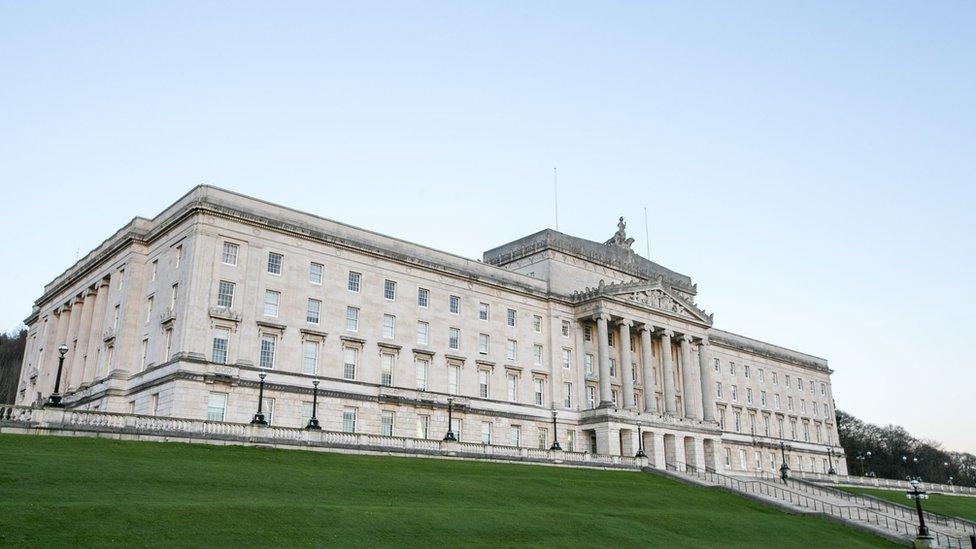
Northern Ireland has been without a functioning executive since 2022.
Monday's talks will discuss ongoing efforts to restore the executive.
Before Christmas, when the secretary of state made the £3.3bn financial offer, he said it was "time for [the DUP] to take some decisions".
The package includes £584m to address public sector pay issues, which has been at the heart of a series of strikes.
Tens of thousands of workers including nurses, teachers and civil servants are taking part in a mass industrial action, billed by unions as the biggest strike in Northern Ireland's history., on Thursday, 18 January.
But, before Christmas, the DUP's Sir Jeffrey Donaldson said the deal did not offer a "basis to deliver the financial stability Northern Ireland needs".
The party collapsed the devolved institutions almost two years ago in protest against post-Brexit trade arrangements for Northern Ireland.
Sir Jeffrey said there was no agreement with the government over the Windsor Framework, which the party says damages the economy and undermines Northern Ireland's place in the UK.
- Published10 January 2024
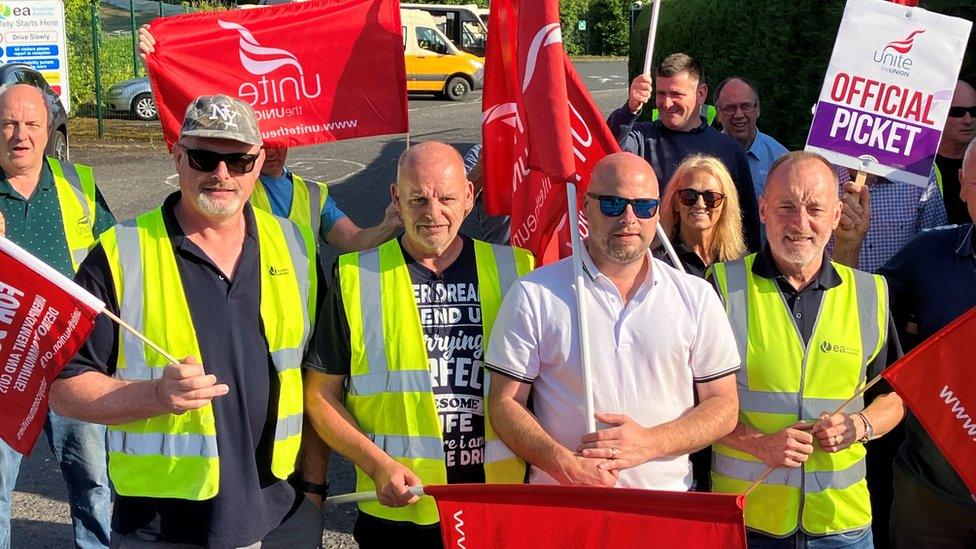
- Published8 January 2024
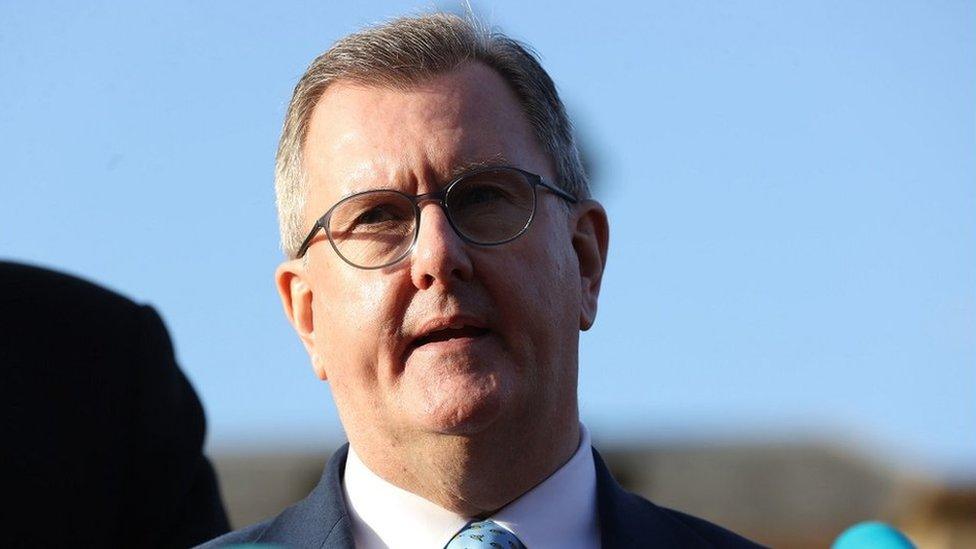
- Published20 December 2023

- Published19 December 2023
